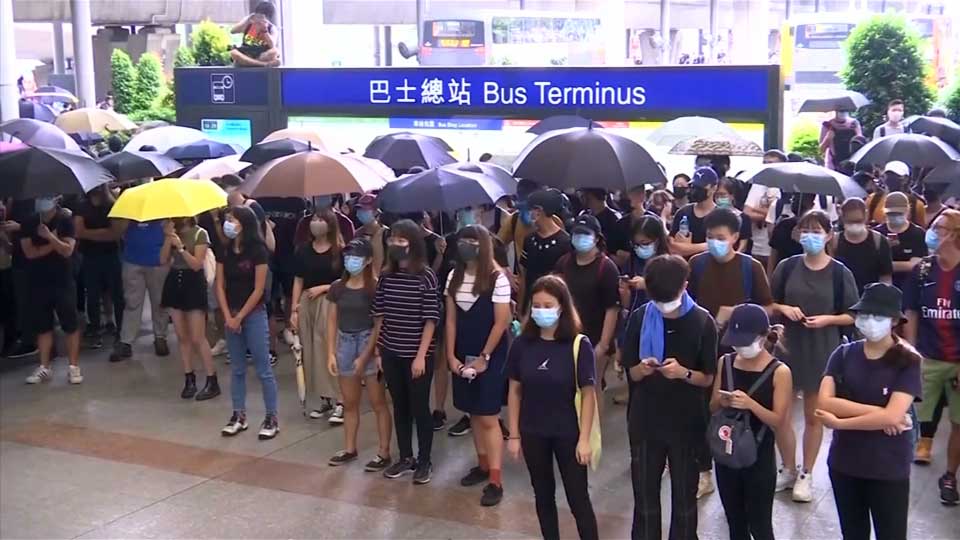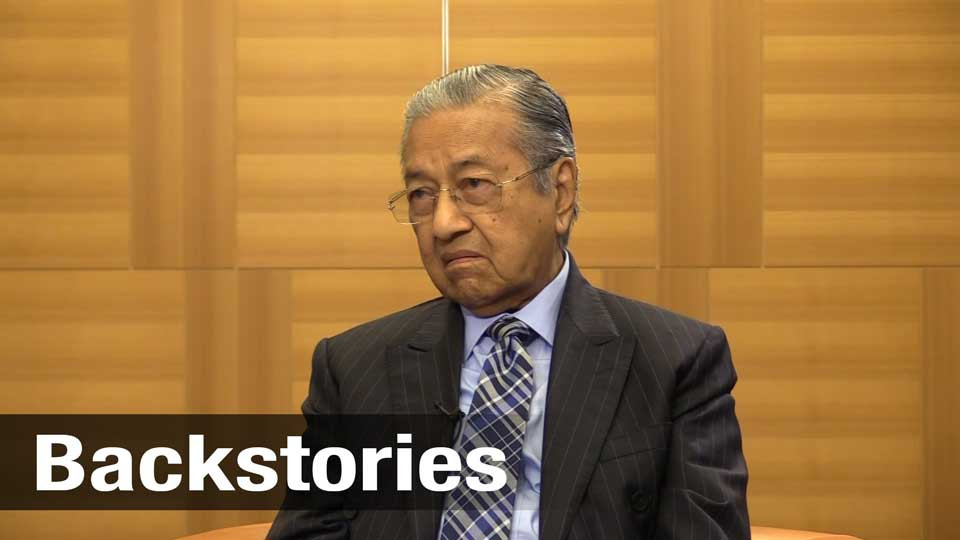Q: Massive anti-government protests have been rocking Hong Kong for more than two months. How do you see the situation there?
A: I never thought that a country with two different systems can really work for any length of time. Sure enough, this has happened. I think, in the end, there will be only one system. They will have to adopt the system that is prevalent in the mainland.
I am quite sure that the people of Hong Kong were pretty sure for a long time, even during British rule, that there was no democracy. But, of course, British laws are much more lenient.
So now, the idea that they could be tried in mainland China will mean that they will be subject to the laws and systems of the mainland. This worries them, because the mainland is not as free as Hong Kong. But now they feel they should make a bid for autonomy, or maybe even independence. But I don't think China would accept that.
Q: So, that means that maybe the protests will go on... for maybe two months, three months or more. What kind of impact would that have on Asian countries, including Malaysia?
A: Hong Kong is a very big economy, despite its size. A lot of trade with China is done via Hong Kong. I'm quite sure businesspeople in Hong Kong would not feel happy with any change in the situation. And already, we see a number of them leaving Hong Kong for some other countries. This will happen, and I'm quite sure that the role of Hong Kong as a big trading point would very much lessen after this.
Q: Would this have any impact on the economy in Malaysia and elsewhere?
A: Well, some countries may benefit from Hong Kong people and their money migrating to, maybe, Singapore or even Malaysia, and some other places... Vancouver in Canada, perhaps. These people will benefit from the influx of migrants as they will be well-off businesspeople, and they have shown that wherever they go they stimulate the economy.
Q: What are the negative impacts of the situation in Hong Kong?
A: Trade and investment into China can pass through Hong Kong because people are familiar with it. And certainly the non-Chinese will find that doing business with China will be a little bit more difficult without the intervention of the Chinese businesspeople in Hong Kong.
Q: How do you think this can be solved? Is there any possibility the Chinese government could use force to end the protests?
A: If you look at what happened at Tiananmen, the Chinese government tries to manage it, but in the end, because of the inability to exert control, it may be that they will bring forces from the mainland.
Q: Do you think do they will do that?
A: If they cannot handle this, if this thing doesn't stop, and the demands become more and more for autonomy or independence, I think the Chinese will not tolerate that .
Q: For the stability of Asia, it’s not a good thing, right?
A: Well, certainly it will be affected in some way or other, but I don't think it will be very deep -- it will not be a disaster for the economy of Asia.
Q: What about human rights in Hong Kong?
A: We see human rights all over the world being disregarded, even in the US, where children are taken away from their parents and confined. All kinds of things are done all over the world. So, the Chinese may be affected by accusations like that. But the world is seeing a lot of injustice. The strong will always bully the weak.
Q: So will it also happen in Hong Kong?
A: It will happen in Hong Kong and we will see this happening elsewhere.

Q: Now, let's move on to the leadership of the United States. How do you evaluate the current US president?
A: It's very difficult to evaluate him. This is not a "normal" president. He is so keen on making America great again at the expense of others. He is targeting migrants, even to the point of taking action against children. He has separated children from their parents, and now they have difficulty with all kinds of problems, including building a wall between Mexico and America. This is not the America that we believe we know -- it is a totally different America. So, it is very difficult to gauge what Trump will do.
Q: How do you assess the trade war between China and the US?
A: A trade war is never good, even between small countries. But Trump decided he would go to war... a trade war... with China.
One has to remember that China's population is bigger than the combined population of the US and Europe. Its domestic market is huge, so anything it produces can be consumed by that market of 1.4 billion people. So, it is not easy to forcibly restrict China or to prevent it from growing.
Economically, it will still grow -- maybe at a slower rate. China is not like Iran, because even if the US applies sanctions, China will continue to trade with other countries. It's not easy to block or sanction China. So, China’s growth will be stunted a little for some time, but eventually, like all economies, they will adjust to the situation. And, I think, in the end it is the US that will have to pay a heavy price.
Q: Do you see any solution?
A: No, not for some time, I think the US will continue unless there’s a change of government there.
Q: Last May in Tokyo, you mentioned that Malaysia will be trying to make use of Huawei technology as much as possible. Does it mean that you are on the Chinese side of this trade war?
A: No, we don't believe in sanctions and boycotting goods and all that. It doesn't contribute to the economy. Yes, Huawei has very advanced technology -- we don't and we are not trying to compete with them. We don't have much to hide from them. If they're able to spy on us, they can spy -- but what is there to spy on?
Certainly in terms of technology, Huawei is way ahead of us. So, they cannot steal our technology. We want to do business, not only with Huawei, but also with everyone. We have done good business with Japanese companies and with Korean companies, because Malaysia is a trading nation.
Q: So you're not on one side?
A: Just because we do not condemn Huawei doesn't mean we are taking sides in any trade war between China and other countries.
Q: Regarding the US-China relationship, there are two initiatives. China's saying that they want to promote the “One Belt, One Road" initiative and the US is promoting the “Indo-China Pacific" initiative. What position is Malaysia taking on these two initiatives?
A: “One Belt, One Road” has been there for centuries. We all know about the Silk Road. We all know that all ships traveling from east to west or west to east must pass through the Straits of Malacca and the South China Sea. So, “One Belt, One Road” is already there.
The only thing is, if there are no restrictions, there is freedom of navigation, so I don't think today is much different than before. But of course, China would like to keep this passage open because it's good for China's economy. They have to import and they have to export.
Q: ASEAN countries have to face the confrontation between China and US on these two initiatives. How do you manage to work with both these giant countries?
A: So far, we have managed. We are not quarreling with the US, we are not quarreling with China. As long as the passages are open, that's good for us.
The only thing we worry about is either side sending warships to the South China Sea. If the US does that, China will just react in the same way. There will be a lot of warships in the South China Sea, there may be accidents and there may even be clashes between the two.
This interview was conducted on September 6 in Kyoto. It has been edited for brevity and clarity.

